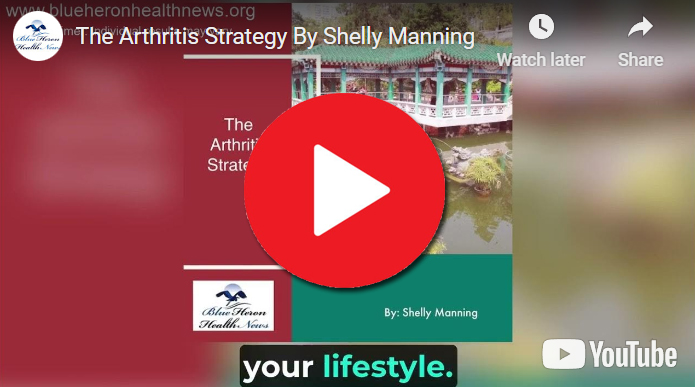
The Arthritis Strategy By Shelly Manning A plan for healing arthritis in 21 days has been provided by Shelly Manning in this eBook to help people suffering from this problem. This eBook published by Blue Heron publication includes various life-changing exercises and recipes to help people to recover from their problem of arthritis completely. In this program, the healing power of nature has been used to get an effective solution for this health condition.
How does the American healthcare system support individuals with anxiety?
The American healthcare system provides support for individuals with anxiety through a combination of medical, psychological, and community-based services. Here’s an overview of how the system works to support those dealing with anxiety:
1. Access to Mental Health Professionals
- Psychiatrists and Psychologists: Individuals with anxiety can access treatment from licensed mental health professionals, including psychiatrists, who can prescribe medication, and psychologists, who typically provide therapy such as Cognitive Behavioral Therapy (CBT). CBT is one of the most effective treatments for anxiety disorders.
- Therapists and Counselors: Licensed therapists and counselors offer various forms of psychotherapy, including CBT, mindfulness-based therapy, and exposure therapy, which are all commonly used to treat anxiety.
- Primary Care Physicians (PCPs): PCPs often serve as the first point of contact for individuals experiencing anxiety. They can provide initial diagnosis, prescribe medication, and refer patients to specialists as needed.
2. Medications
- Pharmacological Treatments: The healthcare system provides access to medications such as selective serotonin reuptake inhibitors (SSRIs), serotonin-norepinephrine reuptake inhibitors (SNRIs), and benzodiazepines, which are commonly prescribed to manage anxiety symptoms. Medications are typically prescribed by psychiatrists or primary care physicians and are often used in conjunction with therapy.
3. Insurance Coverage
- Mental Health Parity Act: Under the Mental Health Parity and Addiction Equity Act (MHPAEA) of 2008, most insurance plans are required to provide coverage for mental health services, including anxiety treatment, at levels comparable to coverage for physical health services. This includes coverage for therapy, medication, and inpatient or outpatient care.
- Medicaid and Medicare: For individuals with low income or those who are elderly or disabled, Medicaid and Medicare provide coverage for mental health services, including treatment for anxiety. These programs often cover therapy, medications, and sometimes even specialized services like intensive outpatient programs.
4. Community and Online Resources
- Community Mental Health Centers: These centers provide accessible mental health services to those in need, often offering sliding scale fees based on income. They are an essential resource for individuals without insurance or those with limited financial means.
- Telehealth Services: The rise of telehealth has made it easier for individuals to access mental health services, including therapy and psychiatric consultations, from the comfort of their homes. This has been particularly important during the COVID-19 pandemic and has continued to grow as a standard option for care.
- Support Groups: Many organizations, such as the Anxiety and Depression Association of America (ADAA) and the National Alliance on Mental Illness (NAMI), offer support groups and resources for individuals with anxiety. These can be in-person or online and provide a community for those seeking peer support.
5. Crisis Intervention Services
- Crisis Hotlines: The National Suicide Prevention Lifeline (1-800-273-TALK) and other hotlines provide immediate support for individuals experiencing severe anxiety or in crisis. They offer counseling and can connect individuals to local resources.
- Emergency Services: In cases of acute anxiety where there is a risk of self-harm or harm to others, emergency services, including 911, can provide immediate intervention and transport to emergency rooms for stabilization.
6. School and Workplace Support
- School-Based Mental Health Services: Many schools have counselors or psychologists on staff to support students with anxiety. Some schools also offer programs aimed at reducing stress and anxiety among students.
- Employee Assistance Programs (EAPs): Many employers offer EAPs that provide confidential counseling and mental health services to employees. These programs often include access to short-term counseling for anxiety and other mental health issues.
7. Public Health Campaigns and Education
- Awareness Campaigns: Public health campaigns aimed at reducing stigma and increasing awareness of mental health issues, including anxiety, help encourage individuals to seek treatment. These campaigns are often supported by organizations like the Centers for Disease Control and Prevention (CDC) and the Substance Abuse and Mental Health Services Administration (SAMHSA).
- Mental Health Education: Schools, workplaces, and community organizations increasingly offer education on recognizing and managing anxiety, helping to create a more supportive environment for those affected.
Conclusion
The American healthcare system offers a broad range of supports for individuals with anxiety, from medical and psychological treatment options to community resources and crisis intervention services. Insurance coverage, including Medicaid and Medicare, helps make these services accessible, while ongoing efforts to reduce stigma and increase awareness continue to encourage individuals to seek the help they need.
The Arthritis Strategy By Shelly Manning A plan for healing arthritis in 21 days has been provided by Shelly Manning in this eBook to help people suffering from this problem. This eBook published by Blue Heron publication includes various life-changing exercises and recipes to help people to recover from their problem of arthritis completely. In this program, the healing power of nature has been used to get an effective solution for this health condition.
